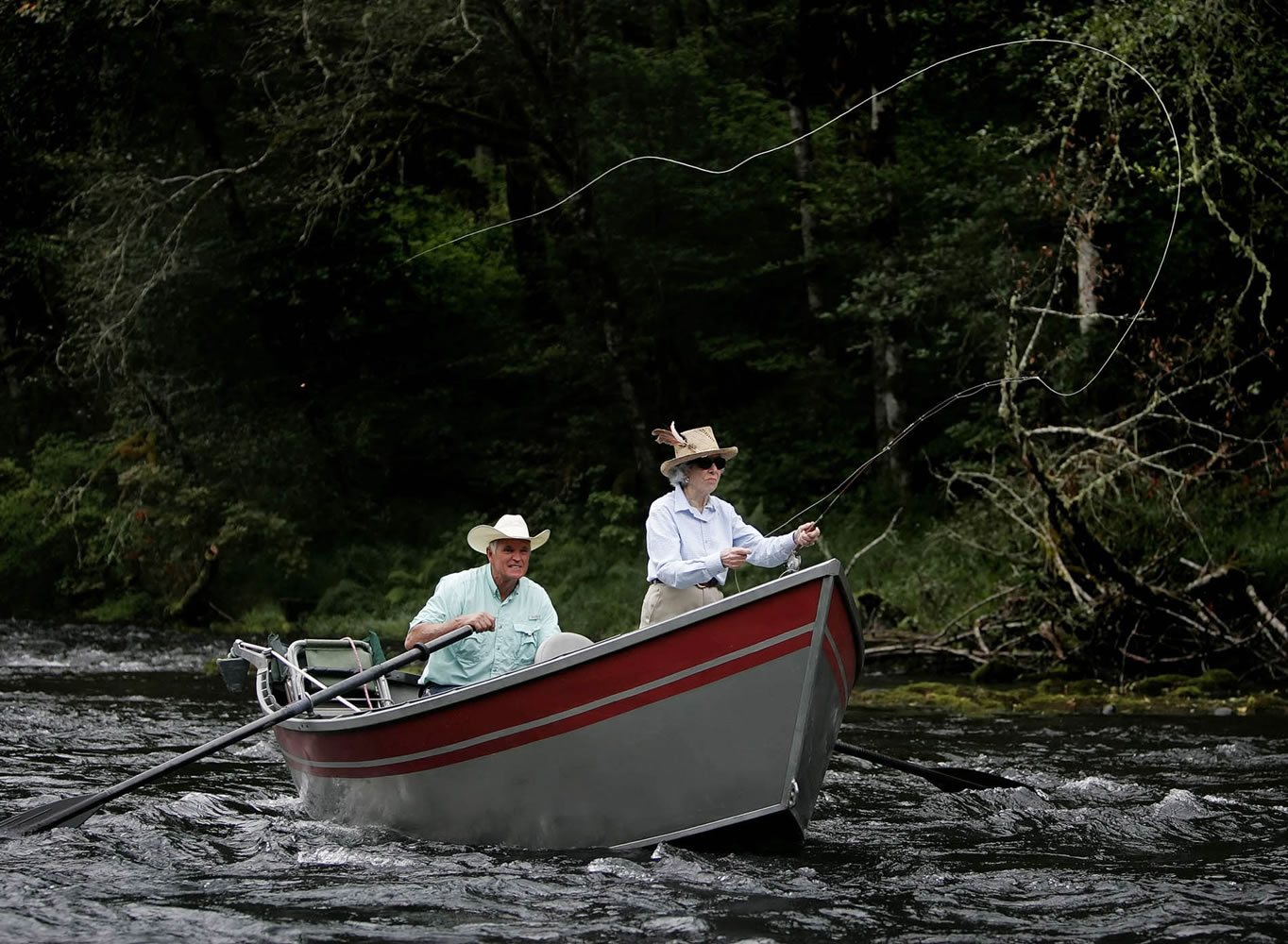Fewer Oregonians are hunting and fishing these days, translating into less money to sustain wildlife management and conservation. To help fill the gaps, the state’s wildlife agency wants to raise fees for the outdoor enthusiasts who remain in a proposal to be revealed Thursday.
The Oregon Department of Fish and Wildlife is taking a new look at how it pays for its programs, and it plans to request a bigger share of general fund revenue and more frequent increases in license and tag fees.
The agency will unveil a budget blueprint Thursday and then take the plan on the road to seek public comment in seven cities next month.
“License sales aren’t keeping up with expenditures,” said Rick Hargrave, department spokesman.
The agency faces a projected $32 million shortfall as it builds a budget for 2015-17, he said. It plans more than $8 million in fee increases and more than $8 million in program reductions and efficiencies, which could include layoffs or leaving vacancies unfilled.
Fee increases are typically done all at once every six years, Hargrave said, but the plan now calls for smaller increases every two years to soften the impact on hunters and anglers.
The plan also calls for drawing more heavily on other revenue sources, including an additional $11.2 million sought from the general fund.
Hargrave said the rationale for the shift is that the department’s work benefits all Oregonians, not just hunters and anglers.
Much of the agency’s funding has historically come from hunters and sport fishermen, both through fees for licenses and tags and through federal excise taxes on the purchase of firearms, ammunition, archery supplies, fishing equipment and boat fuel.
Firearms sales have surged in recent years, but that has not translated into a boom in hunting participation, which in Oregon and nationwide has continued a decline that began three decades ago and shows few signs of reversing course.
Between 2000 and 2012, Oregon’s population grew by more than 13 percent, but the number of people with hunting licenses dropped more than 15 percent and fishing licenses fell 9 percent.
Since 2000, the wildlife department’s budget has grown by two-thirds, with much of that growth dependent on federal funding, license and tag fees, and a hodgepodge of other revenue sources.
General fund and lottery revenue made up 11 percent of that mix in 1999-2001, but that share was down to less than 7 percent in the latest two-year budget.
Stan Steele, a member of the department’s external budget advisory committee, said he wants to see more of the department’s budget shift back to general funds. Steele, a former State Police fish and wildlife trooper, said he sees a “death by a thousand cuts” if the agency cannot find a way to decrease its reliance on revenue from a smaller numbers of hunters and fishers.
A number of factors are contributing to the declines in hunting participation, including social factors such as increasing urbanization and competition from other activities.
“People in the city … have lost touch with how we were raised,” said Larry Potter, a hunter who brought his grandson and granddaughter to an Oregon Hunter’s Association youth event at the Canby Rod and Gun Club on Saturday.
Brandee Andrews brought two of her four sons to the event where volunteers coached young people in archery and shotgun skills. She said “it’s a heritage, in a way,” that she feels may not be passed down as much these days.
Some hunters blame the decreasing interest on loss of access to traditional hunting grounds, reduced wildlife populations and more difficulty getting tags, which all lead to fewer hunting opportunities. Hunters say they can’t continue to foot the bill for a hobby that gets more expensive every year.
The department will present the proposal to the public for comment beginning in Clackamas County on May 19, with additional presentations in La Grande, Bend, Newport, Coos Bay, Roseburg and Klamath Falls.



